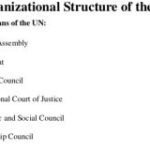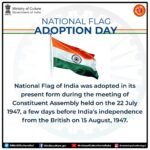World Bank Fast-Tracks $1 Billion COVID-19 (Coronavirus) Support for India

The World Bank’s Board of Executive Directors today approved a fast-track $1 billion India COVID-19 Emergency Response and Health Systems Preparedness Project to help India prevent, detect, and respond to the COVID-19 pandemic and strengthen its public health preparedness. This is the largest ever health sector support from the Bank to India.
This new support will cover all states and Union Territories across India and address the needs of infected people, at-risk populations, medical and emergency personnel and service providers, medical and testing facilities, and national and animal health agencies.
The project will immediately enable the Government of India (GOI) to scale-up efforts to limit human-to-human transmission, including reducing local transmission of cases and containing the epidemic from progressing further. In parallel, interventions to strengthen the health system will be rolled out to improve the country’s capacity to respond to the COVID-19 epidemic and be better prepared to respond to emerging disease outbreaks, including transmission between humans and animals.
Procurement of testing kits; setting up of new isolation wards — including turning hospital beds into intensive care unit beds; infection prevention and control; and purchase of personal protective equipment, ventilators, and medicines, particularly in district hospitals and designated infectious disease hospitals will be scaled up under the project.
The project is financed from the International Bank for Reconstruction and Development (IBRD) in the amount of $1 billion, of which $350 million is provided through the World Bank Group’s COVID-19 Fast-Track Facility.
LEARNING WITH TIMES
WORLD BANK: Since inception in 1944, the World Bank has expanded from a single institution to a closely associated group of five development institutions. It evolved from the International Bank for Reconstruction and Development (IBRD) as facilitator of post-war reconstruction and development to the present-day mandate of worldwide poverty alleviation in close coordination with its affiliate, the International Development Association (IDA), and other members of the World Bank Group, the International Finance Corporation (IFC), the Multilateral Guarantee Agency (MIGA), and theI nternational Centre for the Settlement of Investment Disputes (ICSID). The World Bank Group is headquartered in Washington, D.C. W. Reconstruction remains an important part of WB work. However, at today’s World Bank, poverty reduction through an inclusive and sustainable globalization remains the overarching goal.
The World Bank Group five institutions are managed by their member countries.
The IBRD lends to governments of middle-income and creditworthy low-income countries.
The IDA provides interest-free loans—called credits— and grants to governments of the poorest countries.
The IFC , a member of the World Bank Group, is the largest global development institution focused exclusively on the private sector.It help developing countries achieve sustainable growth by financing investment, mobilizing capital in international financial markets, and providing advisory services to businesses and governments.
The MIGA was created in 1988 as a member of the World Bank Group to promote foreign direct investment into developing countries to support economic growth, reduce poverty, and improve people’s lives. MIGA fulfills this mandate by offering political risk insurance (guarantees) to investors and lenders.The ICSID provides international facilities for conciliation and arbitration of investment disputes.
David Malpass , is the current President of World Bank Group.






0 Comments